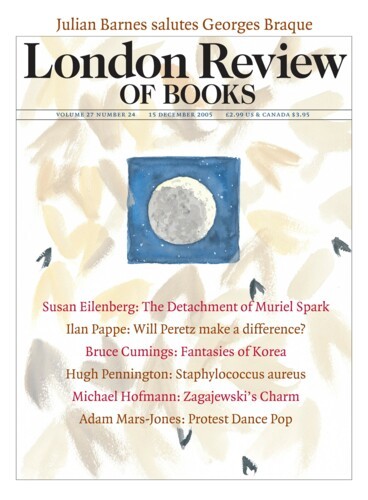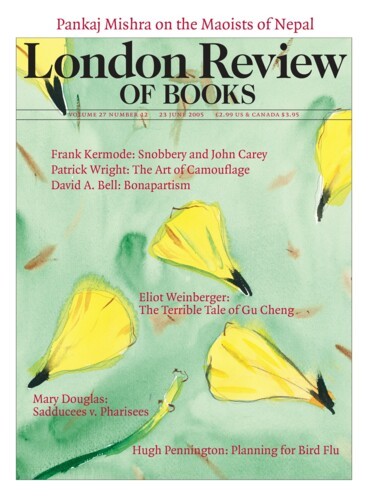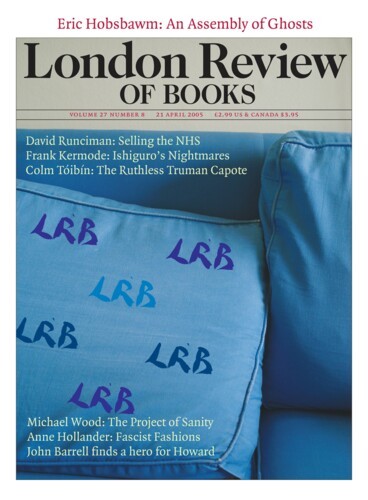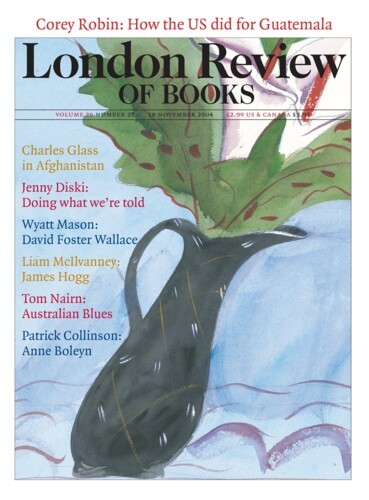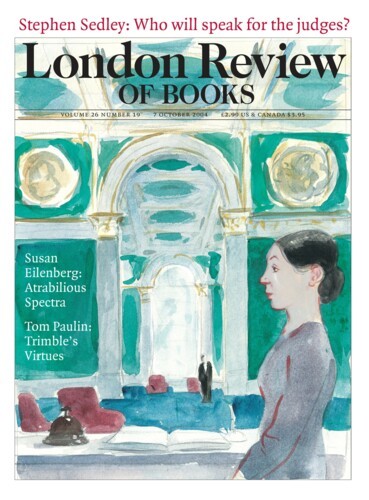Don’t pick your nose: Staphylococcus aureus
Hugh Pennington, 15 December 2005
M stands for methicillin, a chemical derivative of penicillin, first called BRL 1241 because it was developed during the 1950s in the Beecham Research Laboratories at Betchworth in Surrey. R stands for resistant; the development of methicillin resistance in a hospital was first detected in October 1960 in Guildford, also in Surrey. And SA stands for Staphylococcus aureus, the bacterium that causes boils, carbuncles, abscesses, osteomyelitis and most wound infections after surgery. It was discovered in the late 1870s by Alexander Ogston, a surgeon at the Aberdeen Royal Infirmary.
